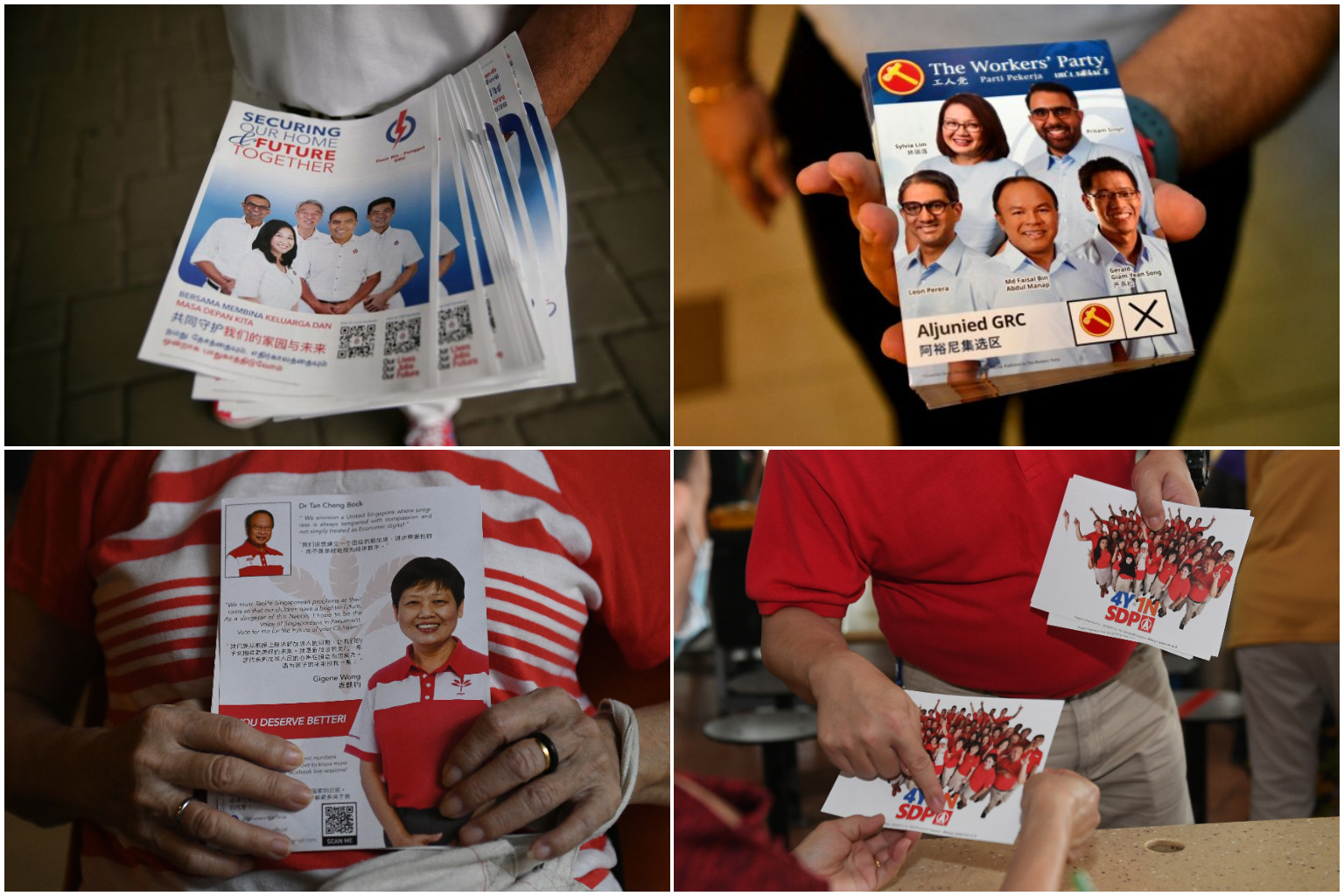Singapore GE2020: What the parties propose on economic matters
Sign up now: Get ST's newsletters delivered to your inbox

(Clockwise from top left) The fliers of the PAP, WP, SDP and PSP.
ST PHOTOS: KEVIN LIM, LIM YAOHUI, SHINTARO TAY
Follow topic:
People's Action Party
• Wage subsidies to protect workers from the immediate impact of Covid-19, income relief for the self-employed and financial assistance for retrenched workers.
• Singaporeans will be able to take advantage of growth sectors and new opportunities through the SGUnited Jobs and Skills package.
• Workers aged 40 to 60 will get extra SkillsFuture credits, subsidised reskilling programmes, special incentives for employers to hire them.
• Seniors, young job seekers, lower-wage workers and workers with disabilities will benefit from Senior Employment Credit, re-employment grants and job redesign; structured traineeships; enhanced Workfare support and extended Progressive Wage Model; and Enabling Employment Credit, respectively.
• Businesses will get help with cash flow, costs and credit, new laws on rental relief, and extra help for hardest-hit sectors like aviation, hotels, tourism and retail.
• Businesses will speed up digital transformation through the Transformation and Growth packages, SMEs Go Digital grants and SkillsFuture Enterprise Credits.
• Goods and services tax (GST) will go up from 7 per cent to 9 per cent, but not before 2022. A $6 billion Assurance Package will pay for the GST increase for five years for most households and 10 years for lower-income households, with social assistance for those who need more help.
Workers' Party
• The GST hike will be scrapped and alternative sources of revenue considered.
• Central Provident Fund (CPF) payout age will be lowered from 65 to 60 and a special dividend from sovereign wealth fund GIC's returns introduced, which can be paid into CPF members' Special Accounts.
• There will be a national minimum take-home wage of $1,300 a month for full-time work, which can be pro-rated for part-time work.
• There will be a redundancy insurance scheme where retrenched workers will receive a payout equivalent to 40 per cent of their last drawn salary for up to six months, subject to limits.
• Patients older than 60 will be allowed to use Medisave for all medical expenses not already covered by MediShield Life, Medifund or other assistance schemes, subject to limits.
• Approved intermediate and long-term care services for patients with monthly household per capita income of below $3,200 will be subsidised.
• Access to universities for students from underprivileged backgrounds, and those with no family history of attending university, will be widened.
• Train and bus fares for Singaporeans aged over 65 and those with disabilities will be waived.
• Universal buy-back scheme will be offered to all Housing Board flat lessees.
Singapore Democratic Party
• Under a national unemployment benefits programme called Restart (Re-Employment Scheme and Temporary Assistance for the ReTrenched), all workers will join an insurance scheme with employers and the Government.
• Retrenched workers will be entitled to an average of 50 per cent of last drawn salary for a period of 18 months, subject to a cap of the prevailing median wage.
• Under Restart Co-op, if the retrenched worker can find other similarly retrenched workers and submit a viable business proposal, they will be able to withdraw their unemployment payouts in one lump sum to use as capital to start a cooperative enterprise.
• The bottom 80 per cent of retirees over 65 will be given a monthly income of $500 under the SDP Retirement Income Scheme for the Elderly (Rise).
• The GST will be suspended until next year, with no subsequent increase to 9 per cent.
• Government-linked companies will be scaled back to encourage small and medium-sized enterprises to grow.
• There will be no further population increase or displacement of local PMETs (professionals, managers, executives and technicians) with foreign ones.
Progress Singapore Party
• A quota for the Employment Pass, and lower quotas for the S Pass and Work Permit will be introduced.
• Free trade agreements such as the India-Singapore Comprehensive Economic Cooperation Agreement (Ceca) will be reviewed.
• Dependence on foreign labour will be reduced by pushing employers to invest in equipment or processes for higher productivity, and moving towards higher value-add and higher-wage model.
• Support for local SMEs will be enhanced by offering them priority in public sector procurements, providing direct support to restructure their businesses and to go overseas.
• Business costs will be reduced.
• A living wage will be provided by increasing the Workfare amount, and the cash portion to 80 per cent.
• A living wage will be introduced to all sectors, after the economy stabilises.

